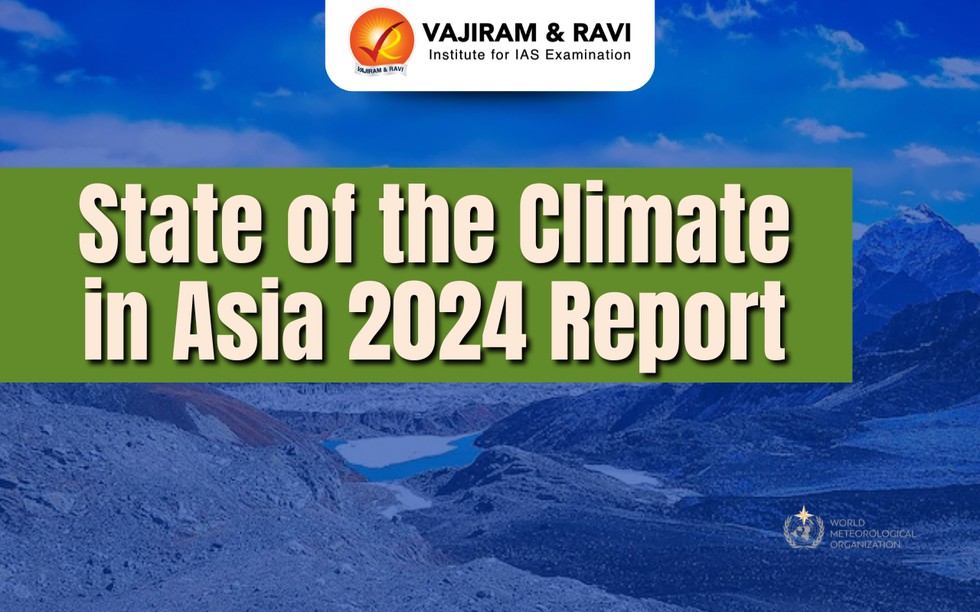About State of the Climate in Asia 2024 Report:
- It is published by the World Meteorological Organisation (WMO).
- It is the fifth edition of climate reports published annually for this region and has involved National Meteorological and Hydrological Services (NMHSs), WMO Regional Climate Centres (RCCs), and several research institutions, as well as United Nations agencies, international and regional organizations.
- The report provides the status of key climate indicators and latest data and information on impacts, risks and policy from United Nations agencies.
Key Findings of the Report
- The global mean temperature in 2024 was the highest on record for the period 1850-2024,
- Each of the years from 2015 to 2024 was one of the 10 warmest years on record.
- Sea surface temperatures were the highest on record, with Asia’s sea surface decadal warming rate nearly double the global average.
- Sea level rise on the Pacific and Indian Ocean sides of Asia exceeded the global average, heightening risks for low-lying coastal areas, according to the report.
- It also highlighted changes in key climate indicators such as surface temperature, glacier mass and sea level, which will have major repercussions for societies, economies and ecosystems in the region.
- In 2024, most of the ocean areas of Asia were affected by marine heatwaves of strong, severe, or extreme intensity — the largest extent since records began in 1993.
- The northern Indian Ocean and in the ocean area adjacent to Japan, the Yellow Sea, and East China Sea were especially affected.
- Three out of four cyclones formed over the Bay of Bengal (Remal, Dana, Fengal), and one formed over the Arabian Sea (Asna).
- Extreme high temperatures affected the Makkah region of Saudi Arabia in mid-June with temperatures reaching 49 °C.
